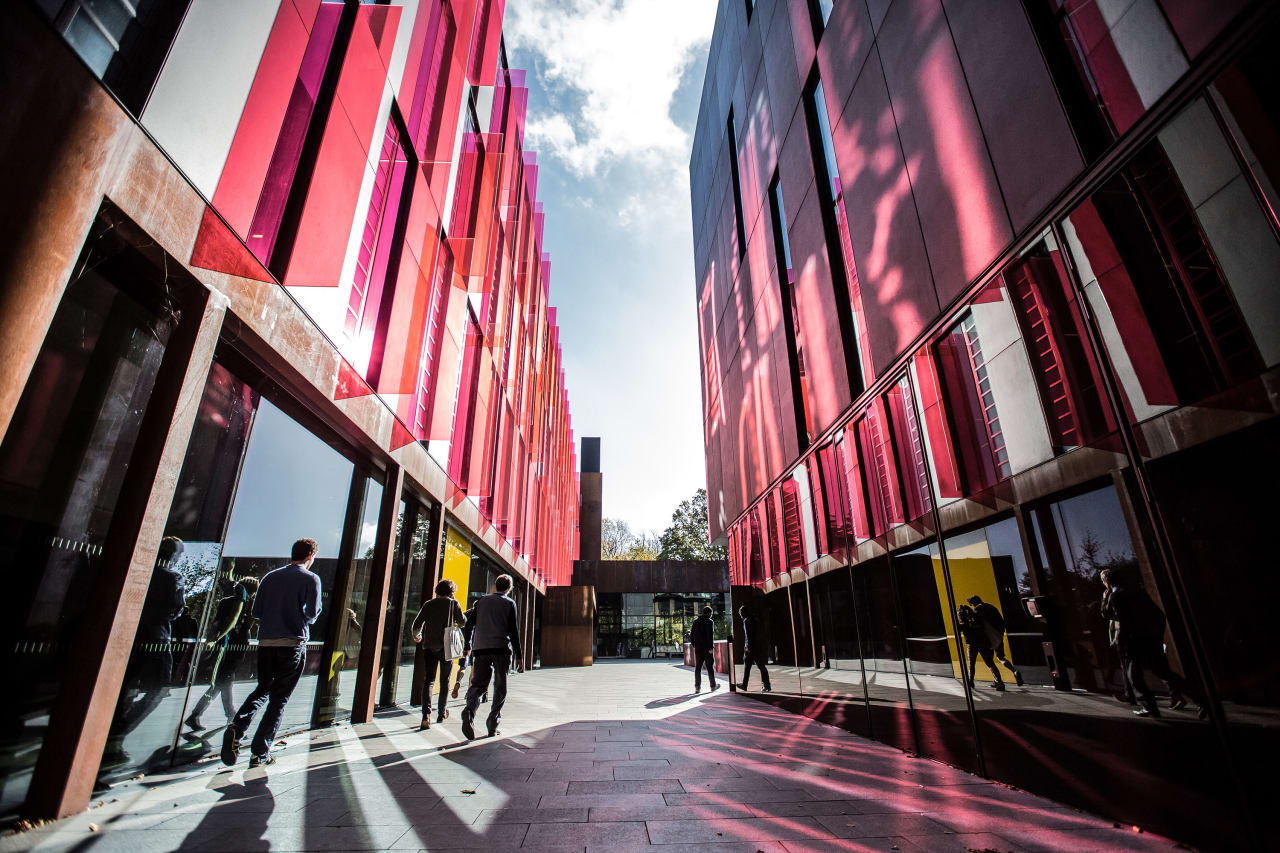
MSc in Infrastructure Planning and Sustainable Development
Oxford Brookes University

Key Information
Campus location
Headington, United Kingdom
Languages
English
Study format
Distance Learning, On-Campus
Duration
12 - 24 months
Pace
Full time, Part time
Tuition fees
GBP 15,900 / per year *
Application deadline
Request info
Earliest start date
Request info
* UK students full-time: £9,400 | International/EU students full-time: £15,900
Scholarships
Explore scholarship opportunities to help fund your studies
Introduction
Our MSc Infrastructure Planning and Sustainable Development offer a new approach to studying infrastructure planning and delivery. It is designed to make the step change needed to meet the sustainability challenges of the 21st century.
The course is ideal if you have or are seeking a career in the field of infrastructure planning and international development in:
- government
- the private sector
- NGOs
- multilateral and bilateral development agencies.
By engaging with new and innovative thinking on infrastructure, you'll learn to respond to the imperatives of rapidly growing cities. And in doing so achieve poverty alleviation, ecological sustainability and local economic growth.
Our core teaching offers a unique mix of theoretical perspectives and practical skills covering:
- governance
- human development
- ecological sustainability
- finance
- programme/project planning.
You'll be prepared to engage with more holistic approaches to decision making and problem-solving. So you can deliver infrastructure that provides for both inclusive and sustainable development.
Gallery
Admissions
Scholarships and Funding
Curriculum
Learning and assessment
There are two modes of delivery for the MSc Infrastructure Planning and Sustainable Development:
- full-time on campus
- open learning (distance learning).
The modules are self-contained so you can start the course either in September or January.
All students have the option to participate in one international field trip and four intensive study periods (one per module).
Study modules
Compulsory modules
- Sustainable Development (30 credits)
This module explores the relationships between urban infrastructure delivery, pro-poor development, environmental change and local economic growth. This provides the grounding for a more holistic approach to infrastructure planning. A key element to this is the teaching of new ways of thinking about infrastructure delivery that draws on emerging global thinking based on systems theory; circular models, decentralised approaches; collaboration and accountability. - Infrastructure Finance (30 credits)
This module takes a problem-based learning approach to equip participants with the grounded understanding of the theory and practice of financing the development, renewal, repair and maintenance of infrastructure. It examines how infrastructure is financed as well as alternative funding models, cost recovery options, and sources of finance. The module also examines the roles of key actors and reviews the approaches, methods and tools used for decision making in a variety of different contexts and under conditions of uncertainty. - Governance and Political Economy (30 credits)
This module aims to provide participants with a firm understanding of governance and decision-making processes involved in the planning and delivery of different types of infrastructure. It is informed by political economy and institutional frameworks and grounded in theories and practices of different methods for addressing broader societal impacts that arise from infrastructure delivery. It will explore different approaches to the participation of stakeholders to enable more informed and inclusive decision-making based on optimum compromises for infrastructure delivery that is to the benefit of the local and wider urban communities. - Development in Practice (30 credits)
The aims of this module are to develop your understanding of the role of infrastructure in development and to equip you with a working knowledge of the key frameworks and approaches used to design and implement local development programmes and projects. The module allows you to experiment with bringing together your broad knowledge base and skills and applying it to an actual project. You will begin by learning how to research and critically assess a development context using participatory and other approaches. This critical analysis is then used to design an infrastructure project which takes into account development goals and addresses the challenges of infrastructure delivery on the project site. - Applied Research Methods (10 credits)
This module provides you with the fundamentals of research design highlighting the difference between qualitative and quantitative research paradigms and demonstrating how data can be both gathered and analysed and how deductive arguments can be used to produce valid generalisations from data. It also provides you with an overview of particular research techniques such that you can choose and develop those tools most appropriate to your Dissertation.
Final project
- Dissertation (50 credits)
The Dissertation follows on from Applied Research Methods and aims not only to generate new knowledge or insights but also to develop your capacities to undertake rigorous research, to plan and execute an extended project and to communicate complex ideas effectively in words and graphically. You will work with a supervisor from within the School to produce an original piece of work of publishable quality, generally, through conducting your own primary research and presenting your findings in a professional manner.
Learning and teaching
We use an 'applied' approach to learning, sometimes called 'problem-based learning' or PBL. It leads to a more challenging and industry-relevant experience. You'll learn in groups and work through problems adapted from complex real situations and case studies.
Full time
Our teaching methods include:
- lectures
- webinars
- online discussion forums
- skills workshops
- seminars
- practical and project work.
Your time will usually consist of:
- two 2-hour weekly sessions for each of the two core modules
- one 1½ hour session for research methods
- independent learning and work on coursework assignments
Distance learning
Online learning material is provided via our Virtual Learning Environment (VLE). Teaching methods include:
- webinars
- recorded lectures
- discussion forums
- Question and Answer sessions
- online collaboration with peers for assessments.
You will have the opportunity for face-to-face contact within the Intensive Study Periods.
Program Tuition Fee
Career Opportunities
Graduates of the School of the Built Environment have an outstanding employment record. To provide an example, usually, 100% of the graduates of the MSc Project Management in the Built Environment are in employment within six months after graduation.
Local, national and international planning consultancies, construction companies, developers, project management consultancies, bilateral and multilateral development agencies and large NGOs all recruit our graduates.
Many of these organisations visit the School regularly to meet students for graduate positions. Our graduates are recognised as having an excellent level of communication, presentation and problem-solving skills.
Free language courses for students - the Open Module
Free language courses are available to full-time undergraduate and postgraduate students on many of our courses and can be taken as a credit on some courses.
Please note that the free language courses are not available if you are:
- studying at a Brookes partner college
- studying on any of our teacher education courses or postgraduate education courses.